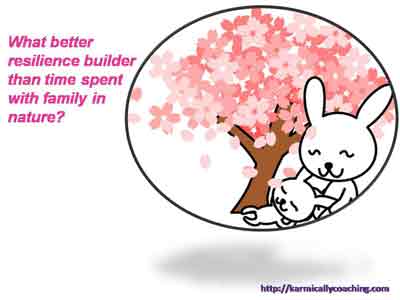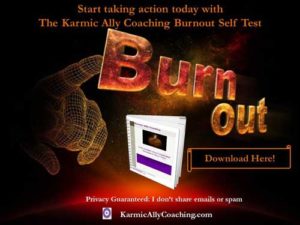This post has already been read 2996 times!

If your family doctor were to ask you during a routine checkup about your mental health, would you fly off the handle screaming that you were not mentally ill or would you stop to think before answering.
My family GP is a retired army doctor who is adept at explaining things and giving me pointers to understand health management. So when he asked me this question after checking my blood pressure and reviewing my blood test a few years ago, I quietly asked him “in what sense?”
His advice was to get more exercise, take walks in nature and not work on Sundays to manage the symptoms of stress which were manifesting in a high cholesterol level. He was right, as always, it was the year end reporting time and I was working over 80 hour weeks with no days off.
Confusing mental health with mental illness
The truth is that people often confuse mental health with mental illness. In fact, mental health is about our sense of well-being; our ability to enjoy life and deal with Life’s challenges.
It would be sometime before I decided to complete a post graduate diploma in psychology & psychotherapy from my bucket list. I am glad I did because I discovered the work of Corey Keyes, an American Sociologist and Psychologist; considered a pioneer in the field of positive psychology and who coined the psychological term “flourishing” which describes mentally healthy adults.
Keyes says that mental health can range from “flourishing” (good) to “languishing” (poor).
Our mental health can lie anywhere on this spectrum. The interesting thing is that people can experience poor mental health and yet not have a mental illness and people living with a mental illness can also experience good mental health.
We are not obliged to settle for poor mental health. Leveraging our strengths, working on those areas where we are weak and exercising the right coping strategies, we can move closer to flourishing end of the spectrum rather than languishing and enjoy a better life with the right stress management strategy.
The Fabulous Five Strength Builders
There are many ways to build our strength, both within us and outside of ourselves. These are my top 5:
Family and Friends
Who knows you better than your loved ones and friends? If the blues are sending you into the languishing zone, talk to them, reach out for support. Take it a step further and connect with them on a regular basis in person or over the phone. Go to the mall for window shopping or hang out with them. Arrange a picnic with family. Posting, liking, commenting on Facebook updates is not enough.

Be Active
A wonderful stress resilience builder is being active, both physically and mentally. The choices are unlimited. These could be exercises, reading, leisure activities, nature walks and any activity that can distract your mind from your worries and focus on things that entertain you.
Practice the Social Law of Community Support
I mentioned this tip in my post 3 Easy Ideas to avoid December melt-down. Social support is well recognized as a way for people to deal with stress. Practice generosity by giving back to your community, volunteer time for causes that are close to your heart.
Connect with your Spiritual Self
We all have a spiritual side to our being. Our faith and spiritual practice can be a strong coping skill during times of stress, anxiety and external pressures such as bereavement, job loss and other major life changes.
You may not even know that you are using spiritual practices although you do them on a regular basis and which may actually be part of your daily routine.
This isn’t just limited to prayers, affirmations or meditation; it could include listening to music, gardening, art, going for walks with the family pet, hobbies, dancing and sports on the weekend.
These activities do more than just provide exercise for the body. They help nurture the soul and help us connect with the world around us.
Make Learning an Ongoing Process
Here I’m talking about becoming a student of Life. Learning and studying does not end with school or college, it is an ongoing process. Be curious about the world around you. Join Adult Education or Hobby classes that stimulate your mind and broaden your horizons. Learn and try new things. Maybe the candle making class you have been thinking about? The recipe you saw on Master Chef’s Master Class?
Moving towards flourishing mental health means doing something each day that makes you feel good about yourself and that is important to you. There are no hard and fast rules; it is all up to you.
This is my list of Strength Builders.
What about you? What sources of strength do you have right now? Are there any that you would like to focus on more to achieve flourishing mental health? Do share your thoughts in the comments box below!
PS. There are tons of tips and suggestions in the Stress Management Blog Category. Here are 2 that you might find useful
Breathe and Meditate to Manage Stress
Written By: Vatsala Shukla




 I adhere to the Certified Coaches Alliance Code of Ethics and Standards. A copy is available on request.
I adhere to the Certified Coaches Alliance Code of Ethics and Standards. A copy is available on request.
 Let's Talk through the Connect Form:
Let's Talk through the Connect Form:
Great pointers Vatsala. I was at the Dr. last week with extreme back pain. He asked if I’d been stressed a lot lately. I had some stress, but not a lot. My back is feeling better now and I don’t think I’m any less stressed, but did do things to nurture my body (i.e. acupuncture, massage, etc.)
I do several things on the list you’ve mentioned. Thanks for the reminders.
🙂
Thanks, Debra. It never hurts to engage in some self-nurturing especially when it comes to health. Glad you are on track. There are many ways that stress can manifest in a person’s body – for example backaches, hormonal imbalances or even a migraine. If one is working with a healer, we might be asked to identify where our body is hurting or where we are experiencing discomfort. This gives an indication of where the stress and tension is manifesting. Somewhat like Charlie Brown saying “my stomach hurts”. Keep up the good work!
Such a timely post, Vatsala. Whenever I feel on the verge of a meltdown, you’re so right – these are the 5 areas I feel drawn back to. They are centers of nourishment and refreshment we sometimes forget are even there.
Recently I found that reconnecting with my body in exercise at least 20 mins in the morning has helped me to become refocused and strong again. These are excellent reminders. Thank you for sharing!
Welcome back, Tanya. It is true that we often take the immediate resources at hand for granted when focusing on them can keep our minds nourished and healthy. Exercising is a great way to get rid of the toxins that build up in our body and even a few stretch exercises during the day can make a difference. No wonder people like to go for a walk to clear their minds when experiencing stress!
Vatsala, you bring up some amazing points here! What I really love about so many of the blog posts I read concerning what experts say about health is that many of the suggestions fall in line with our beliefs and how me and my family carry out our daily lives walking out those beliefs. We aren’t at all affiliated with Judaism or Christianity, but we do follow the Hebrew scriptures. Many things we do like rest on Sabbath days, spend time meditating, relaxing and enjoying family, eating a healthy diet are all apart of things that we follow from that. So it is always so nice to hear these same principles echoed from the health experts in our world.
Thank you Brittnei. Somewhere starting with the Machine Age and with the advances in technology humans have started working like machines forgetting that even a machine needs rest. I mean, even a car engine heats us if not maintained so what about us? The beauty about the different Faiths is that apart from the scriptures, if read carefully, they do offer guidance for a healthy and holistic way of life. The Seven Limbs of Yoga offer guidance for a balanced life and even in the Hindu faith, apart from Yoga and Ayurveda which are now popular world-wide there are 4 stages of life prescribed that are very much oriented to self, family and duty. Likewise with the Chinese Arts. There are many roads to flourishing mental health and I guess our ancestors knew more than we did in this regards.
Wonderful selection of activities – strength builders, Vatsala. Great list and for sure everyone could find the support through reading the post!
For me the top one would be the connecting with the Spiritual Self then to feel “this voice” and follow the guidance, walks in nature (as activity) and painting + writing (as meditation).
And it is important to find and create the “tool-box” where to look at times of confusion, crises.. creating such a list would be a must at school!
Thank you for the compliment, Evita. Guiding readers to build their stress resilience has always been a goal for me. I love your list of strength builders. Did you know that art therapy is also a tool for stress management? The creation of a “tool-box” for guidance in times of anxiety, fear and confusion at the school level is a great idea. I understand some colleges in the USA actually provide services for stress management. During my days at the University of the West Indies, my campus had a Student Advisory Service and students were recruited to be Peer Counselors. I was one such volunteer and was trained to help fellow students handle crisis and stress. It made a big difference to my education and outlook.
Thank you for the distinction between mental health and mental illness.
More education please….. let’s take the stigma off mental illness!
It’s so important to practice self care and take care of your well being.
I love the collective you’ve provided here Vatsala – it does take more than
one thing. And, the more you know, the more you can find a F.I.T. for you!
I am 100% with you Paula on removing the stigma off mental illness. There are many factors that come into play here including hereditary ones over which the sufferer does not have much control. When we speak of transformation, it is a holistic one which includes the mind, body and soul and maintaining good mental health is part of that transformation. Glad you found the collective useful.
Great reminders Vatsala! I love the distinction between poor mental health and mental illness. There have been times when my vitamin D and iron were low, so I had several symptoms that looked similar to depression but it was really just the side effect of not getting enough sun (which happens a lot in Minnesota) and needing to increase my iron. So in addition to exercising, getting more sleep and consistently incorporating spiritual practices into my routine – having my blood levels checked was key to improving my mental health.
Thanks Tai. People do confuse mental illness with mental health and deficiencies in the body can mimic symptoms of depression. The best way I know of getting Vitamin D is during morning walks with Coco when we stand in the garden and I say my morning prayers facing the Sun. Small ritual but it makes sure I get the right dose of Vitamin D to be able to store calcium which is good for the bones and also get the right boost to be happy during the day. Low blood pressure can also create a depressed mood that can be tackled by using ionized salt. Thanks for dropping by!